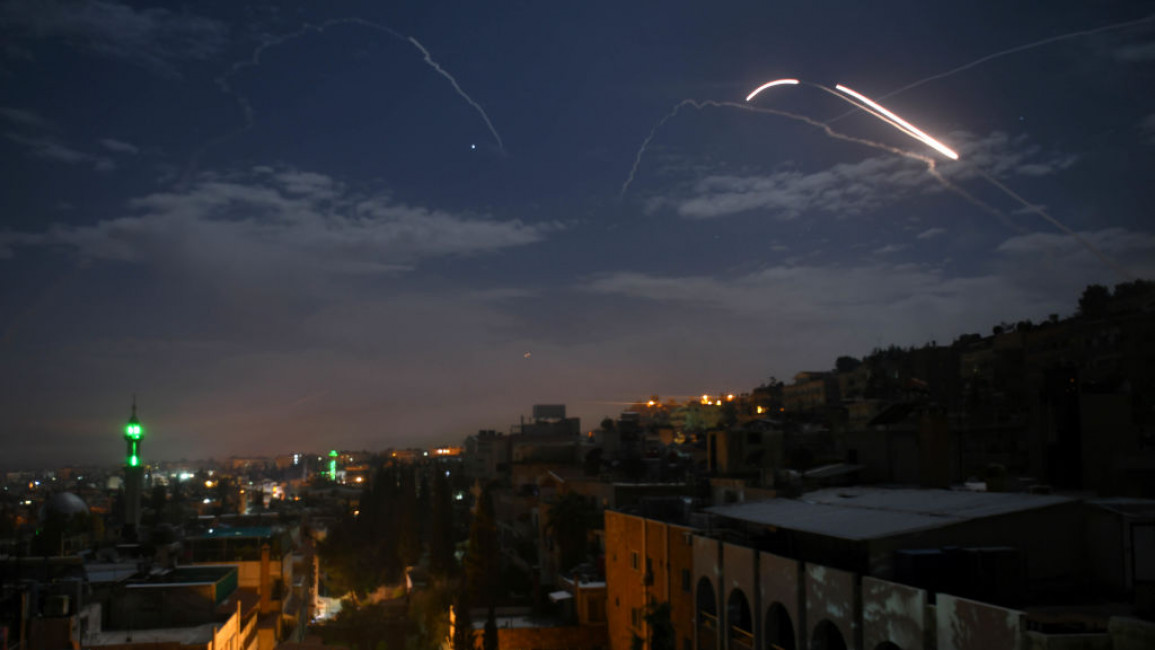Syria regime 'intercepts' Israeli missile strikes near Damascus
Syrian air defence intercepted Israeli missiles south of Damascus on Monday, with no casualties reported, a military source told the Syrian regime's news agency SANA.
"The Israeli enemy carried out an airstrike from the occupied Syrian Golan Heights, targeting points south of Damascus," with Syria's air defence intercepting most of the missiles, SANA quoted the military source as saying.
"The losses were limited to material damage."
An AFP correspondent in the capital Damascus heard loud noises in the evening.
The airstrike targeted sites in the southern Damascus countryside where the Lebanese Hezbollah group and Syrian air defence units are active, the UK-based Syrian Observatory for Human Rights war monitor reported.
Last month, Israeli surface-to-surface missiles killed at least three Syrian officers near Damascus, according to the Observatory - which says it has a wide network of sources inside Syria.
The Israeli strikes had targeted Iranian positions and weapon depots near Damascus, the monitor said at the time.
Since war broke out in Syria in 2011, Israel has carried out hundreds of air strikes against its neighbour, targeting government troops as well as allied Iran-backed forces and fighters of Lebanon's Shia militant group Hezbollah.
The war broke out when the Syrian regime brutally suppressed peaceful protests killing thousands.
While Israel rarely comments on individual strikes, it has acknowledged carrying out hundreds of them.
The Israeli military has defended them as necessary to prevent its arch-foe Iran from gaining a foothold on its doorstep.
The conflict in Syria has killed nearly half a million people and forced around half of the country's pre-war population from their homes.


![President Pezeshkian has denounced Israel's attacks on Lebanon [Getty]](/sites/default/files/styles/image_684x385/public/2173482924.jpeg?h=a5f2f23a&itok=q3evVtko)



 Follow the Middle East's top stories in English at The New Arab on Google News
Follow the Middle East's top stories in English at The New Arab on Google News


